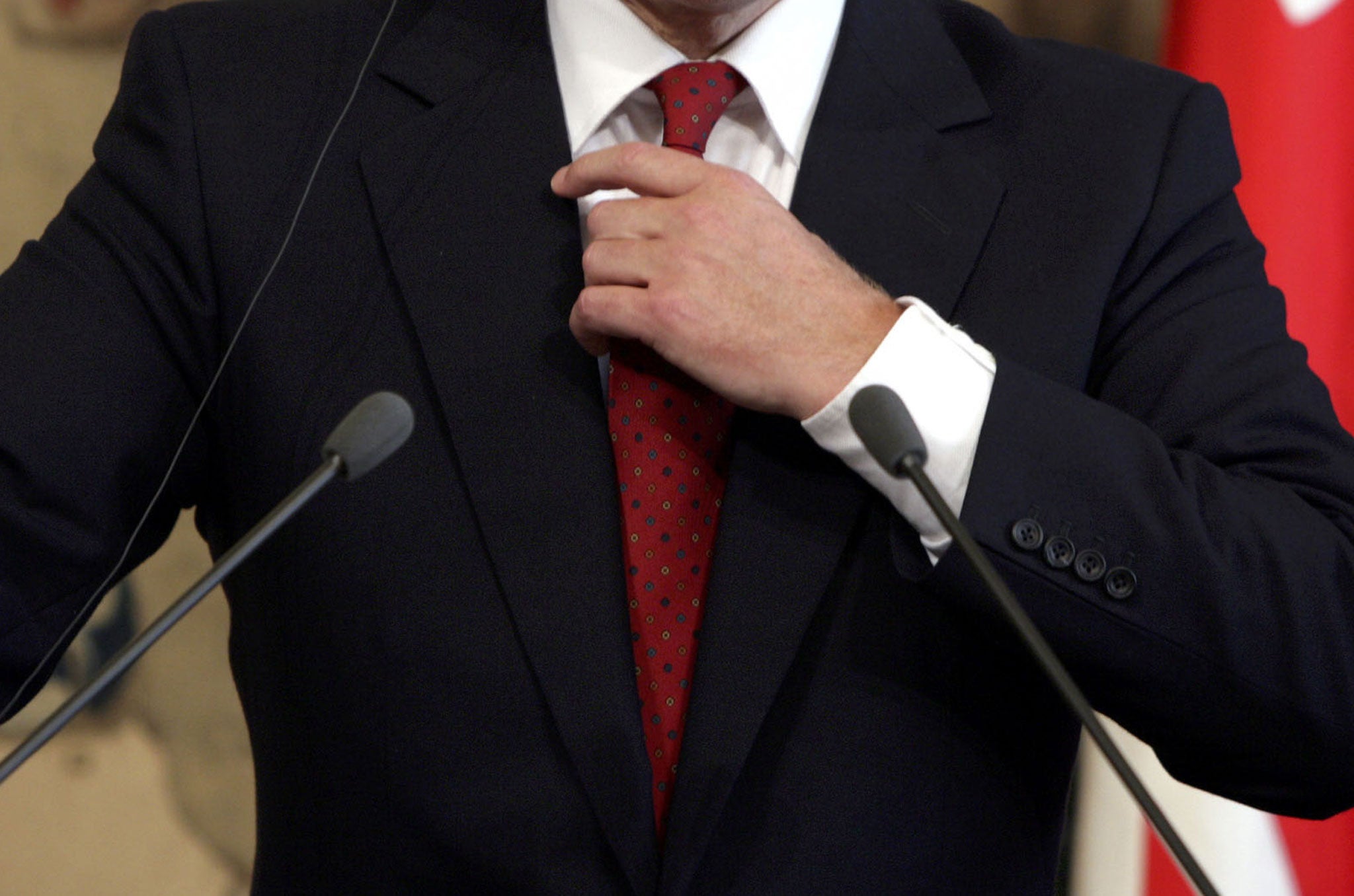A new officer class is required: one that has nothing to do with social class
Ties are going out of fashion and, with them, leadership itself, but it is when things are falling apart that we need authority most

Your support helps us to tell the story
From reproductive rights to climate change to Big Tech, The Independent is on the ground when the story is developing. Whether it's investigating the financials of Elon Musk's pro-Trump PAC or producing our latest documentary, 'The A Word', which shines a light on the American women fighting for reproductive rights, we know how important it is to parse out the facts from the messaging.
At such a critical moment in US history, we need reporters on the ground. Your donation allows us to keep sending journalists to speak to both sides of the story.
The Independent is trusted by Americans across the entire political spectrum. And unlike many other quality news outlets, we choose not to lock Americans out of our reporting and analysis with paywalls. We believe quality journalism should be available to everyone, paid for by those who can afford it.
Your support makes all the difference.They appear on Channel 4 News or Newsnight most evenings, and every morning one of two of them will speak on the Today programme. They are often articulate, confident, even charming, as they explain what they will do next as senior broadcasters, politicians or policemen. What they will lack, almost without exception, is the most important quality of all: the style of a leader.
Who, after all, wants to be seen as an authority figure these days? Even those in charge prefer to be seen as approachable, as not that different in many ways from their junior colleagues – first among equals. Leadership has never been less fashionable. It has become associated with starchy authoritarianism, confused by class prejudice, and sometimes sullied by the general hopelessness of those who are currently in charge. For a politician, today’s greatest fear is to be thought distant and out of touch; ordinariness, the capacity to be as at home chatting on daytime TV as attending an EU summit, is a positive virtue.
None of that matters particularly when all is going well. It is when things are falling apart that leadership comes into its own. The member of the public who took the BBC’s acting Director-General, Tim Davie, to task for not wearing a tie on the grounds that he would not be taken seriously was making a wider point: Davie looked like a man without authority.
Indeed, the reason why his predecessor, the luckless George Entwistle, failed was that he was too obviously a team member, a naturally tieless type, bright, industrious and able, but not a leader.
The capacity to inspire confidence and gain respect has nothing to do with bullying: people like Lord Black or Lord Sugar, who are motivated by personal ambition, are followed out of fear rather than respect. Leadership involves a degree of selflessness, an ability to recognise that the job is bigger than the individual. It accepts that popularity is less important than being strong and aggressive in defence of an organisation under pressure.
Perhaps a new officer class is required: one that has nothing to do with social standing or being born into privilege. Public schools have been much mocked for instilling in their pupils the idea that they are the leaders of the future, but that message, for certain pupils, students and apprentices, is needed more than ever today.
Most of us prefer to belong to the other ranks – it is far easier to be part of the querulous majority who are content to simply follow and complain – but it is important that those making the truly important decisions are officers, slightly removed from the rest of us, set apart by a solid, somewhat old-fashioned sense of duty.
Join our commenting forum
Join thought-provoking conversations, follow other Independent readers and see their replies
Comments